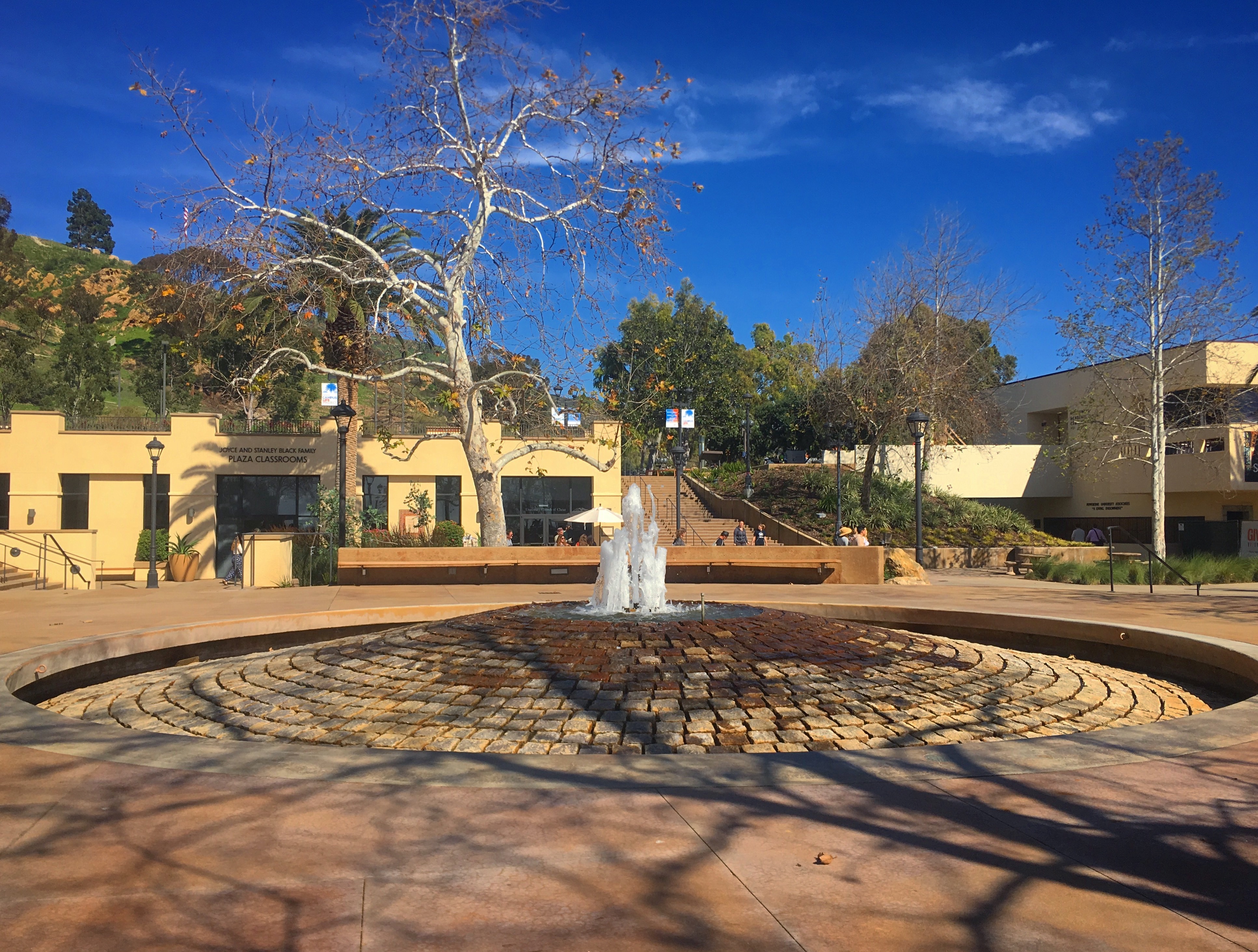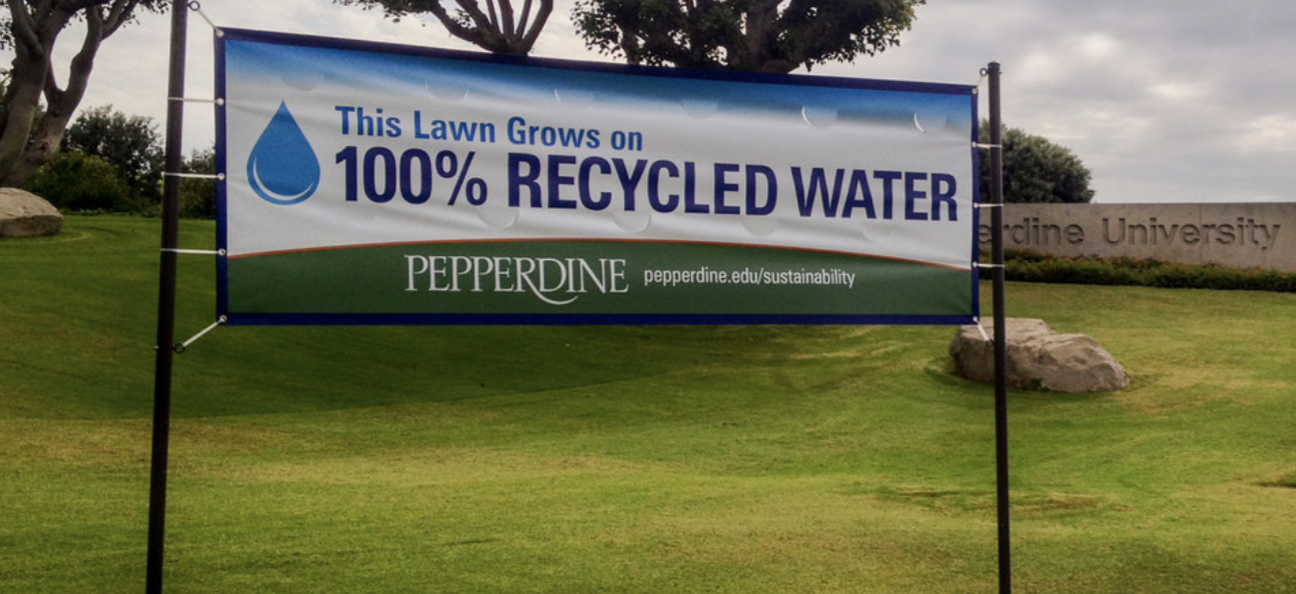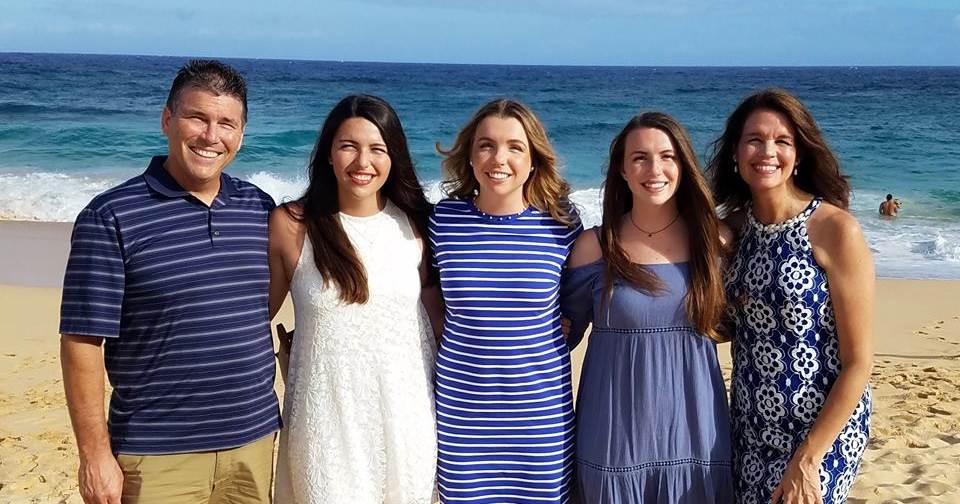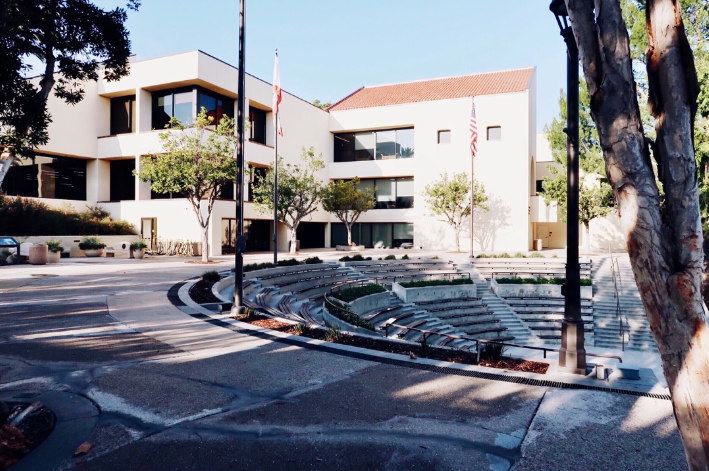
California has experienced a series of powerful storms that have eased drought conditions but left people concerned about future sustainability and water conservation measures.
Pepperdine has used recycled water for its landscaping for 40 years, but the university additionally turned off all 12 fountains on campus throughout the drought. The university installed water saving toilets and shower heads and encouraged students to practice water conservation. As drought conditions subside and the university has turned some fountains back on, eco-friendly students and faculty stress the need to remain vigilant about conserving water.
“As a Christian institution, Pepperdine has a specific responsibility to encourage the use of resources in a reusable way,” Elizabeth Teklits, a senior interpersonal communication major and sustainability minor, said. “The reality is that in places like Central California there are still effects from the drought that have left the place in turmoil, and for this reason we shouldn’t just turn our back to conserve water especially because we never know what will happen next.”
Water conservation remains a top priority at Pepperdine, and the Center for Sustainability helps promote environmental practices and serves as a center for “communication, practice, and education about the environment,” according to the center’s website.
A “new normal”
California Gov. Jerry Brown declared a state of emergency for the drought in 2014 and directed state officials to make efforts to conserve water. The drought, which spanned roughly four years, broke records in being the driest four-year term, according to the California government official website.
Brown ended the state of emergency in most of California in April after a deluge of winter rain and snow and unprecedented water conservation efforts.
“This drought emergency is over, but the next drought could be around the corner,” Brown said in an official statement addressing the end of the drought. “Conservation must remain a way of life.”
Rhiannon Bailard, Pepperdine’s founding director of the Center for Sustainability, took part in a KRPW interview to discuss the issues of the California drought last year.
“Many are saying that we are in the midst of a drought that will continue and will be ongoing and, perhaps due to climate change, it might be the new normal for California,” Bailard said.
Bailard did not respond to email requests to be interviewed for this story. Emily Mead, coordinator for the Center for Sustainability, shared the KRPW interview.
Religion Professor Chris Doran urged the Pepperdine community to remain persistent with conservation efforts.
“The thing we need to focus on is that we are not coming out of a drought,” Doran, who teaches courses in both religion and sustainability, said. “The drought is less severe, but LA county is still in a drought, and I think we need to get used to this new idea of reality, rather than some sort of 10-year blimp on the radar screen.”
Pepperdine’s fountains
Along with other universities across the state of California, Pepperdine turned off all fountains on campus in response to the drought. Pepperdine administrators restored the fountain in Hero’s Garden due to sentimental reasons and its significance to 9/11 in fall 2016. Pepperdine administrators restored the fountain in Joslyn Plaza Feb. 16 in response to a student petition. Junior Andrew Lozano drafted the petition and received 198 signatures to turn the fountain back on, according to a Feb. 21 Graphic article.
Students, faculty and staff have mixed reactions.
“I think the decision to have and turn the fountains back on is short sided,” Doran said. “We’re shooting drinking water into the air in a time where we are still in a drought here in California, and it’s very troublesome as we try to educate students, and live in a place where water is in short supply.”
Some students agreed.
“I think it’s unnecessary that the fountains are turning on and they should stay off,” Michaela Wall, a first-year interpersonal communication major, said. “We should still be trying to conserve water despite this unexpected rainy winter.”
Some believe the fountains at Hero’s Garden and Joslyn Plaza have a strong sentimental and important value to Pepperdine’s history and culture.
“We turned on the fountains in Hero’s Garden and Joslyn Plaza because they both have a particular significance to the campus,” Mead said. “We’ve turned them back on because we have seen that the drought is starting to subside, and if you think about big picture water usage at Pepperdine, the fountains are just a drop in a bucket.”
Mead said the fountain in Joslyn Plaza uses up to 600 gallons of water per day when ran at its full capacity. She was uncertain about the amount of water used in Hero’s Garden but said that it probably used less water than Joslyn Plaza.
The Center for Sustainability and the GreenTeam, a student-run environmental group on campus, have discussed potentially using some of the turned off fountains to promote beauty without using as much water.
“In the near future we might turn the fontains into planters for flowers so that way it’ll still be beautiful,” said Amberly Gil, a senior finance major, sustainability minor and an active member of the GreenTeam. “It wouldn’t be water intensive, and it would be a creative way to use the fountains.”


Irrigation at Pepperdine
Since its early construction in the 1970s, the Malibu campus has tried to promote sustainability and recycle water through its irrigation program.
“One of the main ways we conserve water on campus is by recycling water through our irrigation program,” Mead said. “We’ve been doing this for a while now, and it’s saved billions of gallons of water.”
Pepperdine has saved roughly four billion gallons of water due to its irrigation system, according to the Center for Sustainability’s website.
“Pepperdine has been recycling water through irrigation for a really long time now,” Gil said, “and I think that’s something they are doing really well. It’s a good response to the drought and conserving resources in general.”

Saving water on campus
Pepperdine started adding dual flush toilets throughout campus in 2003. A single dual flush toilet can save about 18,000 gallons of water each year, according to the center. The university is also utilizing low-flow shower heads that reduce water usage by 50 percent.
Dual flush toilets and low-flow shower heads are being used to replace older models throughout campus. The new Seaside Residence Hall, which is scheduled to be completed in August 2018, will incorporate these water saving devices, according to the center.
Throughout campus, the Center for Sustainability has also placed posters and flyers to encourage people to reduce water usage and give them tips on how. Some ways students can reduce water usage include turning off water when brushing teeth, taking shorter showers, washing clothes in cold water instead of hot water and reducing meat consumption.
“In the end, we only have so much drinkable water,” Doran said. “Pepperdine teaches students to think from a Christian perspective and that entails using water as carefully as possible.”
How do Pepperdine students respond to the drought and water conservation?
On campus, Pepperdine students have the power to improve water conservation efforts. Despite coming from different parts of the country, students have a lot to say concerning the drought and how it has impacted their lives.
“Coming from a midwest background, I was never particularly exposed for the need to conserve water,” Anna Clipperton, a junior Hispanic studies major, said. “When I came to Pepperdine, it was quite a culture shock to understand that a drought was actually more than just a joke.”
Out of state students agreed.
“Back in Pennsylvania there wasn’t a drought, and I think I wasn’t as conscious of water usage,” Grace Palmer, a first-year biology and philosophy major, said.
Students from Southern California said the drought is nothing new to them.
“Growin’ up in Southern California, I’ve always been very mindful for conserving water and not overly wasteful in anything,” first-year undeclared major Even Kittlesteen said.
Students recognize the challenge of living in a drought, and have even encouraged others to be more sustainable by using reusable water bottles and taking shorter showers.
“I think it’s important to do student and community outreach in terms of water conservation through education,” said Gabriella Palmeri, a senior biology and political science major and president of the GreenTeam. “Essentially, I think everyone should help promote environmental justice at the forefront of the Pepperdine community for the sake of sustainability.”
Gianni Cocchella completed this story in Jour 241 in spring 2017. Dr. Christina Littlefield supervised the web version and Dr. Theresa de los Santos supervised the video package.



